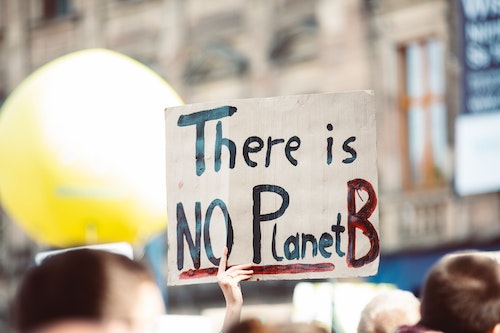Climate change is one of the most pressing issues of our time. It is an urgent global problem that affects all aspects of human life, from food and water supply to ecosystems, economies and national security.
As the human population continues to grow, so do the impacts of climate change. Extreme weather events such as floods, droughts, heat waves and hurricanes are becoming more frequent, causing extensive damage to homes, infrastructure and livelihoods. Sea levels are rising due to melting icecaps and glaciers, leading to coastal erosion and flooding of low-lying regions. Long-term weather patterns are shifting, reducing the future potential for agricultural productivity. Moreover, the effects of climate change are felt disproportionately among vulnerable and impoverished populations, with little or no access to resources to mitigate or adapt to these catastrophic events.
Causes of Climate Change
The primary cause of climate change is the growing amount of greenhouses gases emitted into the atmosphere. These gases trap heat, causing the atmosphere and temperatures to rise. The largest contributors to emissions are the burning of fossil fuels, deforestation and unsustainable agriculture. Additionally, greenhouse gases produced by modern industrial processes are accelerating the impacts of climate change.
Burning of fossil fuels for energy, transportation and industry leads to the release of large amounts of carbon dioxide into the atmosphere. Deforestation is another key contributor, with over half the world’s forests cut down to make way for urban and industrial development. This leads to the release of carbon dioxide, as well as reducing the amount of plant life necessary for absorbing this gas. Agriculture contributes to the problem as well, with cattle and other livestock producing large quantities of methane, a particularly potent greenhouse gas.
Impacts on Human Life
Climate change has immense impacts on human life. increasing temperatures disrupt weather systems and cause more frequent and intense natural disasters, resulting in large losses in lives, infrastructure, and livelihoods. Water shortages and food insecurity become more prevalent due to changes in temperature, which affect crop growth and availability. This is particularly true for developing countries and small island nations, which often lack the resources to adapt and mitigate the effects of climate change. Sea level rise is another grave threat to human life, as increased flooding and storms lead to displacement and destruction of homes, businesses and communities.
Moreover, climate change has adverse impacts on the environment, leading to species extinction and habitat destruction. Changes in temperature and rainfall patterns cause irreversible disruption to ecosystems, which can have further impacts on the food supply, clean air and water security.
Solutions to Climate Change
Solutions to this global problem exist, but there is still much to be done. Reducing emissions from fossil fuels is the most important step. This can be done by phasing out the use of coal, investing in renewable energy sources such as solar and wind, and reducing energy consumption.
Reducing deforestation is also key, which can be done through deforestation-free pledges and reforestation initiatives. Additionally, investing in sustainable agriculture is essential to combating climate change. This includes reducing methane emissions with healthier livestock practices and encouraging farmers to switch to organic and sustainable agricultural methods.
Finally, adapting to the effects of climate change is important, particularly in vulnerable and low-income communities. This includes investing in infrastructure and social services that are resilient to disasters, such as flood-proof homes, storm-resistant road networks, climate-smart agricultural systems, and water and food security schemes.
Conclusion
Climate change is an urgent problem that affects all aspects of human life, from food and water supply to ecosystems, economies and national security. Solutions to this global problem exist, but decisive action needs to be taken to reduce emissions and invest in adaptation. The time for action is now.

